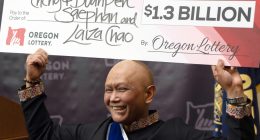It turns out every part of the narrative we’re taught about desire is not merely wrong, but wrongheaded
When I first began having long(ish)-term sexual relationships during my college years I believed an old-fashioned narrative about how desire works. We’re told it’s all passion and “spark” early in a relationship, and that lasts a couple of years maybe. Then we have kids or buy a fixer-upper house or generally get busy with work and life, and the spark fizzles out, especially after 50, when apparently every hormone we ever had floats away on a sea of aging and we’re left, sexless and neutered, to hold hands at sunset.
Our options, we’re told, are either to accept the fizzling of our desire for sex or to fight against it, to invest our time, attention and even our money in “keeping the spark alive”.
At the start of a sexual and/or romantic relationship, we should feel a “spark”, a spontaneous, giddy craving for sexual intimacy with our (potential) partner that might even feel obsessive.
The sparky desire we’re supposed to feel at the beginning of a relationship is the correct, best, healthy, normal kind of desire, and if we don’t have it, then we don’t have anything worth having.
If we have to put any preparation or planning into our sex lives, then we don’t want it “enough”.
If our partner doesn’t just spontaneously want us, out of the blue, without effort or preparation, on a regular basis, they don’t want us “enough”.




